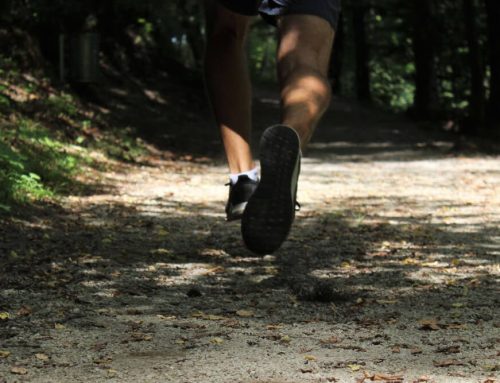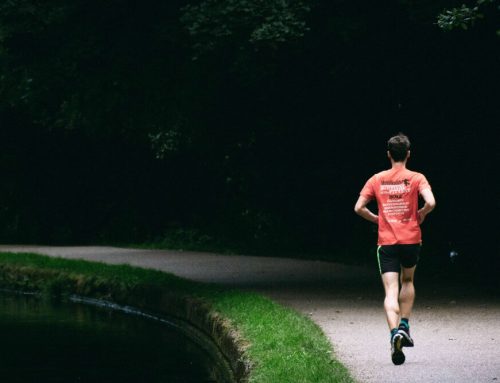Welcome to our guide on 5K training! If you’re considering participating in a 5K race, congratulations! You’re in for a fun and rewarding experience. Training for a 5K can be a great way to improve your physical fitness, challenge yourself, and achieve personal goals.
A 5K, or 5 kilometer race, is a short distance race that is typically about 3.1 miles long. 5K races are popular among runners of all levels, from beginners to experienced runners. Whether you’re looking to set a personal best time or just want to participate in a fun community event, a 5K race can be a great goal to work towards.
Before you begin your 5K training, it’s important to have a clear understanding of the steps involved in preparing for a race. In this guide, we’ll take you through each step of the process, from setting goals and creating a training plan, to staying motivated and focused, and practicing race-day strategies. By following these steps and putting in the necessary work, you can set yourself up for success on race day.
Step 1: Determine Your Goals and Create a Plan
Before you begin your 5K training, it’s important to determine your goals and create a plan to help you achieve them. Setting specific and achievable goals can help you stay motivated and focused during training, and give you something to work towards.
Some examples of goals you might consider setting include finishing the race within a certain time, improving your overall fitness level, or simply participating in a fun community event. Whatever your goals may be, it’s important to make sure they are realistic and achievable, given your current fitness level and the amount of time you have to train.
Once you have determined your goals, the next step is to create a training plan. There are many different training plans available, and it’s important to choose one that fits your needs and goals. Consider factors such as your current fitness level, the amount of time you have to train, and your schedule.
If you’re a beginner, you may want to start with a training plan that focuses on gradually building up your endurance and strength. If you’re an experienced runner, you may want to choose a more advanced training plan that helps you improve your speed and endurance.
Here are some tips for finding a training plan that works for you:
- Research different training plans. There are many different training plans available, so it’s important to do your research and find one that fits your needs and goals. Consider factors such as your current fitness level, the amount of time you have to train, and your schedule.
- Seek advice from a coach or experienced runner. If you’re unsure which training plan is best for you, consider seeking advice from a coach or experienced runner. They can provide guidance and recommendations based on your specific goals and needs.
- Customise the plan to fit your needs. If you’re unable to find a training plan that fits your needs exactly, consider customising one to better fit your goals and schedule. You can do this by adjusting the intensity and duration of your workouts, or by adding in additional cross-training or strength training activities.
By setting specific and achievable goals and creating a training plan that fits your needs, you’ll be well on your way to success in your 5K training.
Step 2: Incorporate Strength Training and Cross-Training
Incorporating strength training and cross-training activities into your 5K training. This can provide a number of benefits, including improved overall strength, endurance and performance, reduced risk of injury.
Here are some examples of strength training and cross-training activities to consider:
- Strength training:
- Weight lifting (e.g. squats, deadlifts, bench press)
- Body weight exercises (e.g. push-ups, lunges, planks)
- Resistance band exercises
- Yoga
- Cross-training:
- Cycling
- Swimming
- Hiking
- Elliptical training
- Rowing
To integrate these activities into your training plan, consider scheduling them in on your non-running days. It’s also a good idea to start with shorter and less intense sessions. You can then gradually increase the duration and intensity as your fitness improves.
By incorporating strength training and cross-training into your 5K training, you’ll be well on your way to improving your overall fitness and performance.
Step 3: Stay Motivated and Focused
As you progress through your 5K training, it’s important to find ways to stay motivated and focused. Training for a 5K can be challenging, and there will likely be times when you feel like giving up or lose sight of your goals. Having strategies in place to help you stay motivated and focused can make a big difference in your training and race performance.
Here are some strategies for staying motivated and focused during 5K training:
- Set specific and achievable goals. Having specific and achievable goals can help you stay motivated and on track with your training. Consider setting both short-term and long-term goals, and make sure to celebrate when you reach them.
- Find a training partner or join a running group. Training with others can help you stay motivated and accountable. You can find a training partner or join a running group to help you stay on track and share in the experience of preparing for a 5K.
- Reward yourself for reaching milestones. As you progress through your training, it’s important to celebrate your achievements and reward yourself for your hard work. This can help you stay motivated and keep you motivated to continue training.
- Stay positive. Training for a 5K can be challenging, and it’s important to stay positive and focus on the progress you’re making. Remember that setbacks are a normal part of the process and that every step you take brings you closer to your goals.
- Seek support and accountability. If you’re struggling to stay motivated or focused, consider seeking support and accountability from friends, family, or a coach. They can provide encouragement and motivation when you need it most.
By staying motivated and focused during your 5K training, you’ll be well on your way to achieving your goals and crossing the finish line with confidence.
Step 4: Pay Attention to Recovery and Nutrition
In order to perform at your best during your 5K training, it’s important to pay attention to recovery and nutrition. Proper rest and recovery are crucial for helping your body recover from workouts and preventing injury, while proper nutrition is essential for supporting your training and race performance.
Here are some strategies for optimising your recovery and nutrition during 5K training:
- Get enough rest. It’s important to get enough sleep and allow your body time to recover after your workouts. Aim for 7-9 hours of sleep per night, and make sure to schedule in rest days or easy workouts on your training plan.
- Eat a balanced diet. Proper nutrition is essential for supporting your training and race performance. Aim for a balanced diet that includes plenty of fruits, vegetables, lean proteins, and whole grains. Avoid processed and sugary foods, and make sure to get enough calories to fuel your workouts.
- Stay hydrated. Proper hydration is crucial for optimal performance and recovery. Make sure to drink plenty of water throughout the day, and consider carrying a water bottle with you on your runs.
- Fuel your body before and after workouts. It’s important to fuel your body before and after workouts to support your training and recovery. Consider eating a small snack before your runs, such as a banana or energy bar, and refuel with a protein-rich snack or meal after your workouts.
By paying attention to recovery and nutrition, you’ll be well on your way to optimising your performance and setting yourself up for success on race day.
Step 5: Practice Race-Day Strategies
As race day approaches, it’s important to start thinking about how to prepare. From logistics and gear, to pacing and motivation, there are many factors to consider.
Here are some tips for preparing for race day and practicing race-day strategies:
- Plan logistics in advance. Make sure to plan ahead and take care of any logistics in advance, such as transportation, parking, and accommodations. This will help reduce stress and allow you to focus on your race.
- Test out your gear. Make sure to test out your gear, including your shoes and clothes, before race day. This will help ensure that you have everything you need and that your gear is comfortable and in good working order.
- Practice your pacing. Proper pacing is crucial for having a successful race. Make sure to practice your pacing during your training so that you know what to expect on race day.
- Stay focused and motivated. There will likely be times during the race when you feel like giving up or losing focus. Having strategies in place to help you stay motivated and focused can make a big difference in your performance. Some ideas include setting specific goals, finding a mantra or phrase to repeat to yourself, and seeking support from friends and family.
- Celebrate and reward yourself. After all your hard work, it’s important to celebrate and reward yourself for your achievements. This could include setting aside time to relax and unwind, treating yourself to a favorite meal or activity, or setting a new goal to work towards.
By practicing race-day strategies and preparing in advance, you’ll be well on your way to a successful and enjoyable race experience.
5k Training Conclusion
Congratulations on completing our guide on 5K training! We hope that you’ve found it helpful and that you’re feeling motivated and excited to start your journey towards your 5K goals.
In summary, the key steps involved in 5K training include:
- Determining your goals and creating a plan
- Incorporating strength training and cross-training into your training
- Staying motivated and focused during training
- Paying attention to recovery and nutrition
- Practicing race-day strategies
By following these steps and putting in the necessary work, you’ll be well on your way to a successful and enjoyable race experience. Remember to celebrate your achievements and set new goals to keep yourself motivated and challenged.
We wish you the best of luck in your 5K training.






